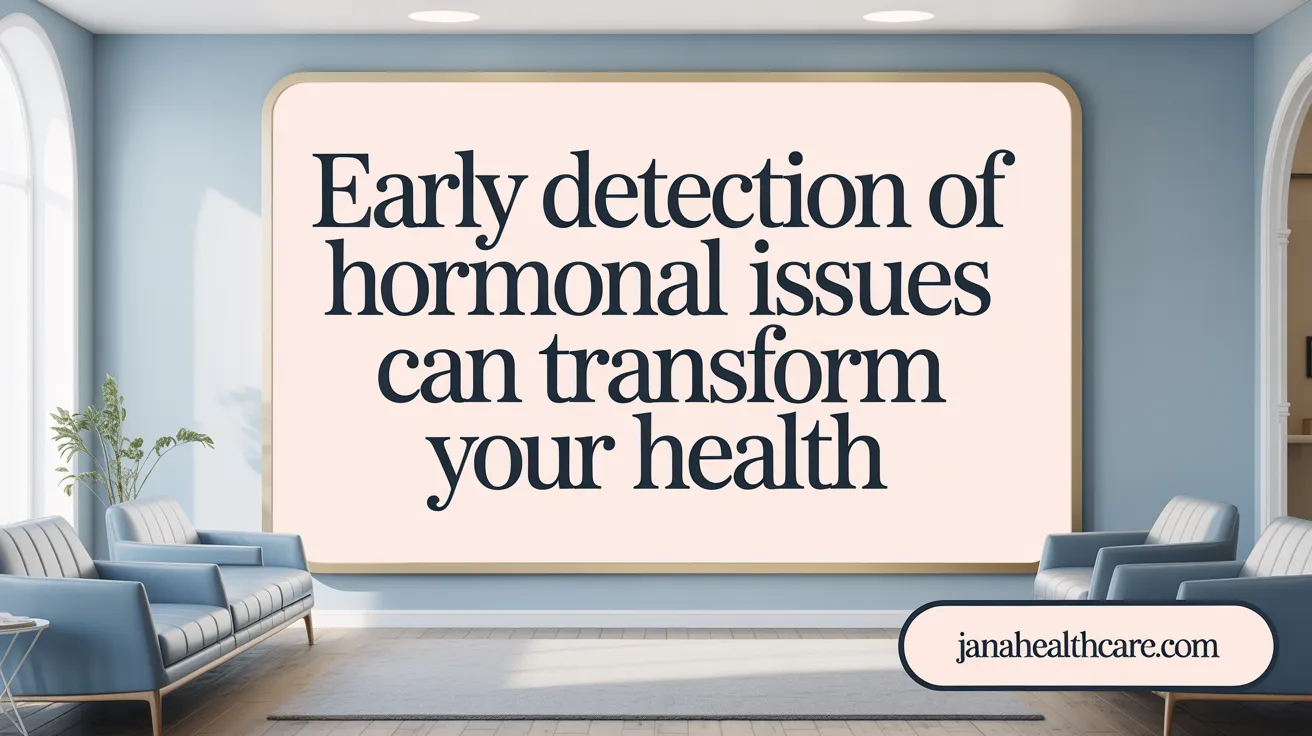Understanding Hormones' Influence Across Life Stages
Hormones act as essential chemical messengers, profoundly impacting our energy levels, emotional well-being, and overall physical health throughout every phase of life. From puberty to menopause and beyond, hormonal fluctuations can shape moods, influence cognitive function, and affect vitality. Recognizing these changes and actively engaging with healthcare providers are key steps toward managing health proactively. This article highlights the essential questions to ask your doctor regarding hormone health and therapies, empowering you to better understand symptoms, diagnostics, and treatment options to achieve hormonal balance and improved quality of life.
The Vital Role of Hormones in Energy and Mood Regulation

How do hormones affect your energy levels and mood during different stages of life?
Hormones are essential for maintaining energy and emotional health at every age. During puberty, pregnancy, menopause, and aging, fluctuations in hormones like estrogen, progesterone, testosterone, and cortisol directly impact how you feel. For instance, rising estrogen levels during the menstrual cycle can boost mood and energy, while drops during menopause often bring fatigue and mood swings. With age, decreasing hormone levels can lead to decreased vitality and emotional resilience. These biological shifts influence neurotransmitter activity in the brain, affecting feelings of happiness, motivation, and stress management. For more details, see How hormones affect energy levels and Hormones and mood influence.
What hormones are most involved in emotional well-being and energy?
Several hormones play central roles in controlling mood and energy. Estrogen and progesterone are critical for women’s mental health, influencing serotonin, a neurotransmitter associated with happiness and calmness. Testosterone contributes to motivation and vitality in both men and women. Cortisol, known as the stress hormone, helps manage energy during stressful times but can cause fatigue or anxiety if chronically elevated. Thyroid hormones regulate metabolism, impacting overall energy levels and mental clarity. Imbalances or deficiencies in these hormones can cause symptoms like depression, irritability, fatigue, and difficulty concentrating. Learn more at Hormones and Your Health and Hormones' Role on Health.
How do hormones influence brain chemistry and neurotransmitters?
Hormones such as estrogen and progesterone modulate brain chemicals like serotonin, dopamine, and GABA, which significantly influence mood and mental health. Estrogen enhances serotonin production, helping to stabilize mood and cognitive processes. Progesterone increases GABA, the body's calming neurotransmitter, promoting relaxation and sleep. Cortisol, when unbalanced, can impair these neurotransmitter systems, leading to mood disorders. During life changes like menopause or pregnancy, hormonal fluctuations disrupt this delicate balance, often resulting in emotional instability, anxiety, or depression. Understanding these interactions highlights the importance of hormonal health for emotional stability. Explore further in Hormonal Balance and Mental Health and Feel-good hormones.
What symptoms indicate hormonal imbalances that affect mood and energy?
Common signs of hormonal imbalances include persistent fatigue, mood swings, irritability, anxiety, depression, and brain fog. Women may experience hot flashes, night sweats, or irregular cycles, especially during perimenopause and menopause. Physical symptoms like weight gain, sleep disturbances, and low libido often accompany these emotional changes. In men, low testosterone can cause decreased motivation, mood swings, and fatigue. Thyroid disorders typically present with low energy, weight issues, and mental sluggishness. Recognizing these symptoms early can lead to proper diagnosis and treatment, restoring hormonal harmony and improving overall well-being. Find evaluation resources at Signs of hormonal imbalance and Hormonal Imbalance.
| Hormonal Influence | Common Symptoms | Affected Life Stages | Additional Notes |
|---|---|---|---|
| Estrogen | Mood swings, hot flashes, depression | Menopause, perimenopause | Neuroprotective effects diminish with age (Estrogen and Women's Emotions) |
| Progesterone | Anxiety, sleep issues | Menopause, menstrual cycle | Supports GABA activity, calming effect (Hormones and Brain Health) |
| Testosterone | Low motivation, fatigue | Aging, hormonal imbalance | Vital for muscle, mood, and energy (Hormones and Your Health) |
| Cortisol | Stress, anxiety, fatigue | Chronic stress, adrenal imbalance | Healthy levels promote alertness (Cortisol and Stress Response) |
| Thyroid hormones | Fatigue, brain fog | All life stages | Crucial for metabolic energy (Thyroid Dysfunction and Cognitive Effects) |
Hormonal health is integral to vitality and emotional resilience. Regular check-ups, lifestyle strategies, and medical interventions when needed can help maintain balance, supporting a vibrant, energetic, and emotionally stable life at every stage. For more comprehensive questions and consultation advice, visit Your Health After 50: Essential Questions to Ask Your Doctor and Top questions for hormone specialists.
Recognizing Symptoms and Diagnosing Hormonal Imbalances

What are common symptoms and signs of hormonal imbalances?
Hormonal imbalances can manifest through a variety of symptoms that affect both physical health and mood. Common indicators include irregular or heavy menstrual periods, which may be accompanied by mood swings and hormones, fatigue, weight fluctuations, and sleep disturbances. Physically, individuals might notice acne, hair loss or excess hair growth (hirsutism), skin darkening, skin tags, and changes in libido or sexual function. Apparent signs also include hot flashes, night sweats, shifts in body fat distribution, and digestive issues such as constipation or diarrhea. Additionally, hormonal issues can cause unexplained weight gain, low energy, and symptoms of depression or anxiety. In men, signs might include gynecomastia (enlargement of breast tissue) and decreased muscle mass. Because these symptoms can overlap with other health issues, a proper diagnosis requires careful evaluation by healthcare professionals. For more information, see Signs of Hormonal Imbalance.
What are the common testing procedures and diagnostic approaches for detecting hormonal imbalances?
To identify hormonal imbalances accurately, healthcare providers rely on several diagnostic tests. Blood tests are the most common, measuring levels of hormones like estrogen, progesterone, testosterone, cortisol, thyroid hormones (TSH, T3, T4), and insulin. These tests provide a comprehensive overview and are typically performed during specific phases of the menstrual cycle for women. Saliva testing offers a non-invasive way to assess free, biologically active hormones like cortisol, estrogen, and testosterone. Saliva samples are often collected at home at designated times to evaluate hormonal fluctuations. Urine tests can analyze hormone metabolites and offer insights into how hormones are processed and cleared from the body. 24-hour urine collections are particularly useful for assessing cortisol rhythm and estrogen metabolism. Imaging studies, such as ultrasounds or MRIs of the endocrine glands (thyroid, adrenal, pituitary), may be necessary if structural issues or tumors are suspected. Together, these tests help determine the hormonal imbalance's nature, guiding effective treatment strategies and further specialist consultation. Learn more about When to See a Hormone Specialist and Hormonal Imbalance Diagnosis.
Hormone Therapy: Options, Benefits, and Risks
 Hormone replacement therapy (HRT) offers various treatment options designed to manage hormonal imbalances, especially during menopause. These therapies primarily involve supplementing hormones like estrogen, progesterone, or testosterone to restore natural hormonal levels when they decline due to aging or health conditions (Hormone replacement therapy (HRT)).
Hormone replacement therapy (HRT) offers various treatment options designed to manage hormonal imbalances, especially during menopause. These therapies primarily involve supplementing hormones like estrogen, progesterone, or testosterone to restore natural hormonal levels when they decline due to aging or health conditions (Hormone replacement therapy (HRT)).
There are different forms of hormone therapy tailored to individual needs, including pills, patches, gels, vaginal rings, creams, or intrauterine devices. For women experiencing menopause, HRT is especially indicated for relief from severe symptoms such as hot flashes, night sweats, vaginal dryness, and mood swings. Besides symptom management, HRT can also support bone health by preventing osteoporosis, a common concern during and after menopause (Hormone Replacement Therapy options, Osteoporosis prevention strategies).
While HRT provides significant benefits including improved quality of life and protection against certain diseases, it also presents risks. Elevated chances of blood clots, stroke, and certain cancers—especially breast and uterine cancers—are associated with hormone therapy, emphasizing the need for personalized medical assessment (Hormone therapy risks and benefits, Risks associated with HRT). Initiating therapy at the lowest effective dose for the shortest duration (generally less than five years) is recommended to minimize risks (Duration guidelines for HRT use).
Medical guidelines advocate careful consideration of factors such as age, health history, and specific risk factors before starting hormone therapy. Regular follow-up appointments are crucial for monitoring treatment effectiveness and adjusting therapy accordingly. Making informed decisions through discussions with healthcare providers ensures that benefits outweigh potential harms (Questions to ask about hormonal therapy, Discussing hormone therapy with your doctor).
For more information, patients are encouraged to search terms like "Hormone replacement therapy benefits and risks menopause" to access current research and guidelines from trusted health authorities (Hormone Replacement Therapy overview, Your Health After 50).
Understanding the balance of benefits and risks helps women make the best choices for their health during menopause and beyond.
Hormones and Mental Health: Navigating Mood and Emotional Stability

How do hormonal changes affect mental health, mood disorders, and emotional stability?
Hormonal fluctuations play a pivotal role in influencing mental health by impacting neurotransmitter activity, brain function, and emotional regulation. During life stages such as puberty, menstrual cycles, pregnancy, postpartum, and menopause, levels of hormones like estrogen, progesterone, cortisol, and testosterone vary significantly. These changes can trigger a range of mood disturbances, including mood swings, irritability, anxiety, and depression.
Conditions like premenstrual dysphoric disorder (PMDD) and postpartum depression are directly linked to hormonal shifts. For instance, the rapid decline of estrogen and progesterone after childbirth or during perimenopause can lead to emotional instability and mental health issues. Additionally, imbalances in thyroid hormones and melatonin may disrupt sleep, weaken immune response, and further contribute to mood swings.
Hormones also influence neural pathways involved in mood regulation. Elevated cortisol levels caused by chronic stress can impair brain function, leading to increased anxiety and depression. Conversely, hormones such as estrogen support mood by enhancing the production of serotonin and other neurotransmitters.
Managing these hormonal influences often requires an integrated approach, combining therapies like hormone replacement therapy (HRT), lifestyle changes including stress management and sleep hygiene, and professional mental health support. Such strategies help stabilize hormone levels and improve emotional resilience, fostering better mental well-being and a balanced mood.
Empowering Your Hormone Health Journey: Essential Questions to Ask Your Doctor
What key questions should patients ask their healthcare providers about hormone health and treatment options?
Patients should first discuss their specific symptoms, such as hot flashes, night sweats, mood swings, or fatigue, and ask whether hormone therapy (HRT) is suitable based on their health history. It's important to inquire about the different forms of HRT—pills, patches, gels, creams, rings, or vaginal options—and which method aligns best with their lifestyle and health considerations. Questions should include the potential benefits of therapy, like relief from menopausal discomfort and osteoporosis prevention, as well as the possible risks, including blood clots, stroke, or cancer. Patients should ask about the recommended duration of HRT use, how to monitor its effects, and whether it could interact with other medications. Additionally, understanding alternative treatments and the role of lifestyle modifications such as diet and exercise forms a crucial part of informed decision-making.
Discussing symptoms and suitability for hormone therapies
Women experiencing severe menopausal symptoms—such as hot flashes, night sweats, vaginal dryness, or irritability—should ask their doctor about the appropriateness of hormone therapy. It's vital to review personal and family medical history for contraindications like previous breast, uterine, or ovarian cancer, blood clots, or heart disease. For women considering HRT, questions about the timing, form, and expected outcomes are essential. Clarifying how therapy might improve their quality of life and what side effects to watch for helps in making an educated choice. See also Hormone replacement therapy overview and Hormone Replacement Therapy options.
Understanding risks, benefits, and therapy options
Healthcare providers can explain the balance between benefits, such as symptom relief, bone health, and cardiovascular protection, against risks like increased chances of certain cancers and blood clots. They should detail the types of hormone therapy available, including bioidentical options, and discuss the safest duration of use—typically recommending the shortest effective period, often not exceeding five years. Patients should also ask about the latest research and guidelines to ensure their treatment plan aligns with current safety standards. For more, see Hormone therapy risks and benefits and Hormonal therapy treatment options.
Importance of lifestyle factors in hormone management
Lifestyle plays a crucial role in supporting hormonal health. Patients should consult their doctor about incorporating regular exercise, a nutritious diet, stress management, and adequate sleep routines to enhance treatment outcomes. Engaging in weight-bearing activities, consuming foods rich in omega-3 fatty acids, vitamin D, and magnesium, and avoiding smoking and excessive alcohol intake can help improve hormonal balance. These strategies not only bolster the effects of medical therapies but also promote overall health and well-being. For guidance, see Lifestyle changes for hormone balance and How hormones affect energy levels.
Taking Charge of Your Hormone Health
Understanding the profound influence hormones have on energy, mood, and overall well-being is the first step toward proactive health management. Recognizing signs of hormonal imbalances and understanding the available diagnostic and treatment options—particularly hormone replacement therapy—can significantly improve quality of life, especially during key transitions like menopause. Equally important is engaging in open, informed conversations with healthcare providers, armed with essential questions about risks, benefits, and personalized treatment paths. Coupling medical guidance with supportive lifestyle strategies enhances hormonal balance and emotional resilience, empowering individuals to navigate their health journey with confidence and vitality.
